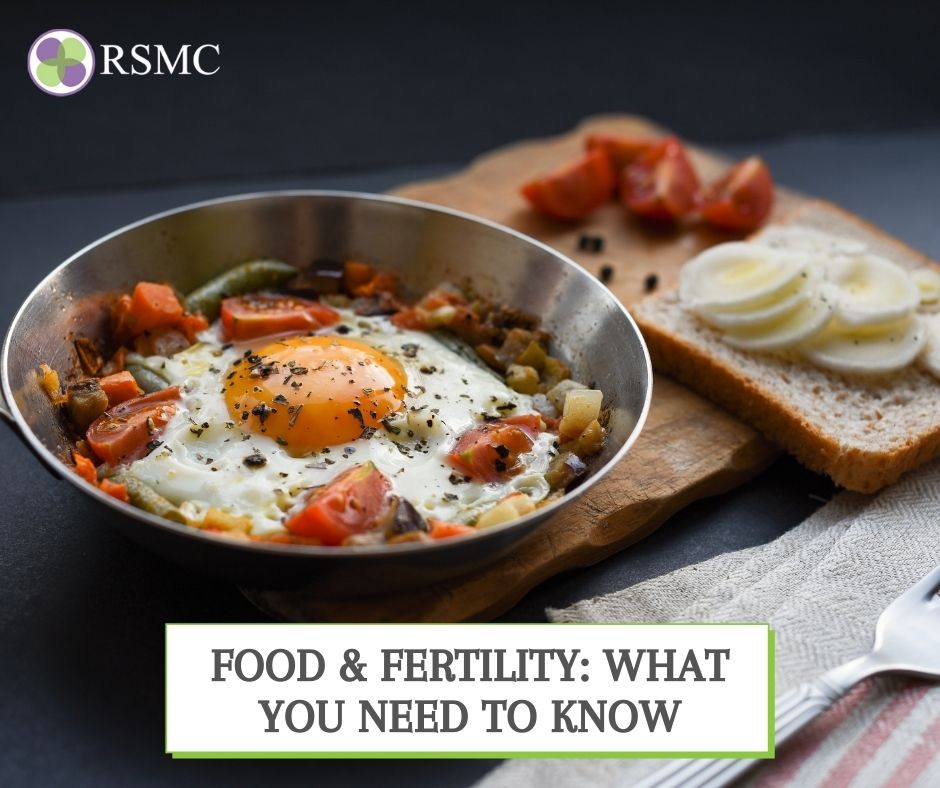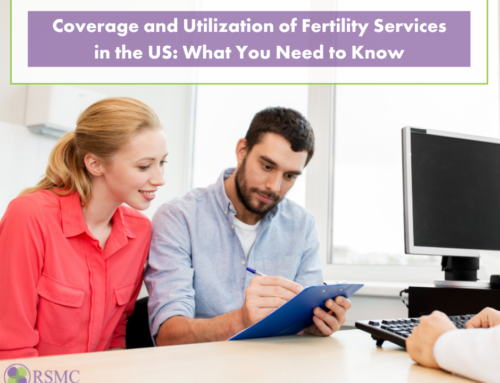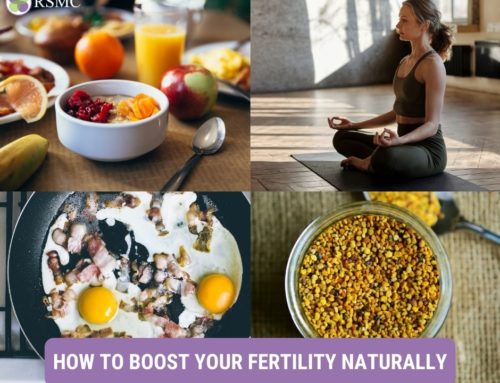How foods impact our fertility health and pregnancy has been a matter of debate and is a frequent question about conception.
Does the food you consume influence your fertility and pregnancy health? Are there any foods that can actually increase your odds of having a baby? What foods should you avoid during pregnancy?
Although, we may not be able to precisely select certain foods that would increase your fertility within a week, resorting to a nutrient-rich diet definitely elevates your health in general including reproductive health.
As per the National Center for Biotechnology Information, eating foods rich in unsaturated fats, whole grain meals, fresh green vegetables, and fishes are linked to better fertility health in both males and females. Although current findings on how dairy, caffeine, and alcohol impact reproductive health is variable, saturated fats, and sugar are associated with poorer fertility outcomes.
Keeping the above facts in mind, we have prepared a list of foods to eat that can help boost your fertility and become pregnant.
1. Salmon
Salmon is a great source of high-quality protein. It also packs many other nutrients that are crucial for fertility. Fatty fish, like salmon, sardines, and lake trout, contain a high amount of omega-3 fatty acids, which has an excellent anti-inflammatory effect on the body.
It is also rich in vitamin D, and studies have shown that optimal levels of omega-3 fatty acid and vitamin D are essential for fertility. Moreover, vitamin D is linked with long-term health benefits for both the mother and the fetus.
2. Avocado
Avocado has a high amount of vitamins, minerals, proteins, fatty acids, and fiber. It is also an excellent source of folic acid and vitamin E, which is important for the development of the endometrium – the inner lining of the womb.
3. Eggs
Eggs are one of the most nutrient-dense foods you can take. They contain a high amount of all the important vitamins apart from vitamin C. Eggs also pack many minerals, healthy fats, and proteins. They are also a good source of kaolin, which plays a crucial role in fetal development. Remember that all the egg contains all the nutrients a cell to grown into a chicken!
4. Carrot
This nutrient-rich vegetable is full of minerals, fiber, antioxidants, and vitamins, which are known to improve fertility. Carrot also has a high amount of beta-carotene, which promotes the production of progesterone. Progesterone is a female hormone that helps with the implantation of the embryo in the womb. Plus, beta-carotene helps improve the quality of sperm (not just the motility but also the volume).
5. Chia seeds
Chia seeds are otherwise known as “the Incas gold” because of their rich nutritional content and amazing characteristics. They contain a load of omega-3, fatty acids, fiber, and some proteins. These seeds are also rich in minerals like – zinc, calcium, iron, selenium – and vitamin B, which are all important for fertility.
6. Beets
Beets are a good source of nitrate and are known to enhance the flow of blood in the body. This is why athletes use them.
Fertility experts recommend that women who are looking to get pregnant eat beets, as they enhance blood circulation in the uterus. Plus, beets are a rich source of the antioxidant called resveratrol, which helps boost fertility.
7. Walnuts
Walnuts are very nutritious in nature. They pack a lot of nutrients that are good for your hormones and are a great source of omega-3, proteins, and unsaturated fats. Walnuts contain a high amount of powerful antioxidants and vitamin-E, which prevents the damage of sperm and egg cells. Studies have even indicated that these walnuts improve sperm quality.
A couple of walnuts is recommended per day if you are trying to become pregnant.
8. Quinoa
The quinoa seed contains a lot of nutrients. It is loaded with all the essential proteins and is gluten-free. Quinoa also has many minerals, vitamins, fiber, and fatty acids and is an excellent substitute for other carb-rich foods, including rice, bread, and potatoes. Besides, it is rich in protein and can be eaten together with lentils, peas, and beans.
9. Spinach and Kale
Both kale and spinach are highly rich in nutrients. They are a good source of iron, calcium, b-carotene, and vitamin C. These green vegetables also contain high amounts of antioxidants that slow down the aging of gamete cells (sperm and eggs). According to studies, spinach and kale can prevent cell damage and repair old, worn-out cells.
10. Pomegranate
This fruit is loaded with many essential nutrients, such as folic acid, vitamin C, vitamin K, and several other vitamins and minerals. Pomegranate has been shown to exhibit an excellent anti-aging effect and is great for heart health and blood circulation. It also possesses excellent anti-inflammatory properties in the body. In the Eastern World, pomegranate is considered a symbol of fertility.
11. Beans and Lentils
Beans and lentils are high in fiber and protein and improve ovulation.
Studies reveal that acquiring protein from plant-based sources, instead of animal protein results in improved tracking of monthly cycles and also helps when trying for a baby. Moreover, legumes are an excellent source of folic acid, an essential element that benefits pregnancy, and the development of healthy embryos.
12. Sunflower Seeds
Sunflower seeds are rich in vitamin E, a vital nutrient that increases sperm count and sperm motility. Also, sunflower seeds provide plenty of zinc, folic acid, and selenium, which are potent nutrients for male fertility health.
13. Asparagus
Studies confirm that eating one cup of boiled asparagus fulfills over 60% of daily folic acid requirements, satisfies body’s need for vitamin K, and offers more than 20% of vitamins A, C, and B. This powerhouse of food is also abundant in zinc and selenium.
14. Walnuts
Walnuts are packed with omega-3 and omega-6 fatty acids, helping our body maintain hormone regulation. Research also confirms consuming walnuts on a regular basis improves sperm motility, quantity, and morphology.
Walnuts also have high quantities of selenium, a mineral that declines chromosomal damage in eggs.
15. Pineapple
Pineapple offers a great source of vitamin C with just 1-cup serving fulfilling 46% of daily recommendation. Remember that vitamin C deprivation is known to worsen PCOS cases.
Pineapple also contains bromelain enzyme making it an excellent anti-inflammatory supplement. Eating inflammatory foods can harm your fertility health, and chronic inflammation may also lead to suppressing ovulation.
16. Cinnamon
Cinnamon helps remedy irregular menstrual cycles in women struggling with Polycystic Ovarian Syndrome (PCOS).
In an intriguing study, women with PCOS showed almost doubling the number of menstrual periods while taking cinnamon on a daily basis compared to women taking a placebo.
17. Yogurt
Yogurt contains as much calcium as milk and can help you meet your daily calcium needs. Moreover, it is rich in protein and folate.
However, the plain varieties are obviously a better choice as they are free of added sugars and help you keep the calorie intake in check.
18. Dried fruit
Dried fruits such as figs, dates, prunes, and dried apricots are great sources of protein, vitamins, and minerals. Many dried fruits are valuable sources of fiber, iron, calcium, potassium, and antioxidants. Eating these foods also helps in increasing fertility health as they offer selenium.
19. Berries
Strawberries, raspberries, and blueberries contain natural antioxidants as well as anti-inflammatory phytonutrients. Eating berries greatly improves the fertility health of both men and women. More importantly, berries are high in vitamin C and folic acid, providing healthy growth of the fetus.
20.Water
When trying to get pregnant, drinking adequate water as per body weight is very important. Water helps kidneys to filter and excrete the waste products produced in our body, increasing fertile quality cervical fluid.
Also, it plays a vital role in delivering nutrients to the cells, and drinking enough water vastly improves constipation during pregnancy.
A Word From RSMC
When trying for pregnancy, your environment and your food selection play vital roles. Hence, it is important that you pay close attention to them. We hope the above discussion proves to be helpful for hopeful parents planning to start and grow their family.
There’s no denying that the foods we eat have a significant impact on our fertility health. But it’s also important to note that infertility can be caused by other health issues as well, such as PCOS, endometriosis, hormonal imbalance, etc., and may require fertility treatment care.
If you have already tried everything within your capability and are still struggling with infertility, set up a consultation with RSMC today to see what might be the root cause. You can also visit our website and have a chat with our team.























